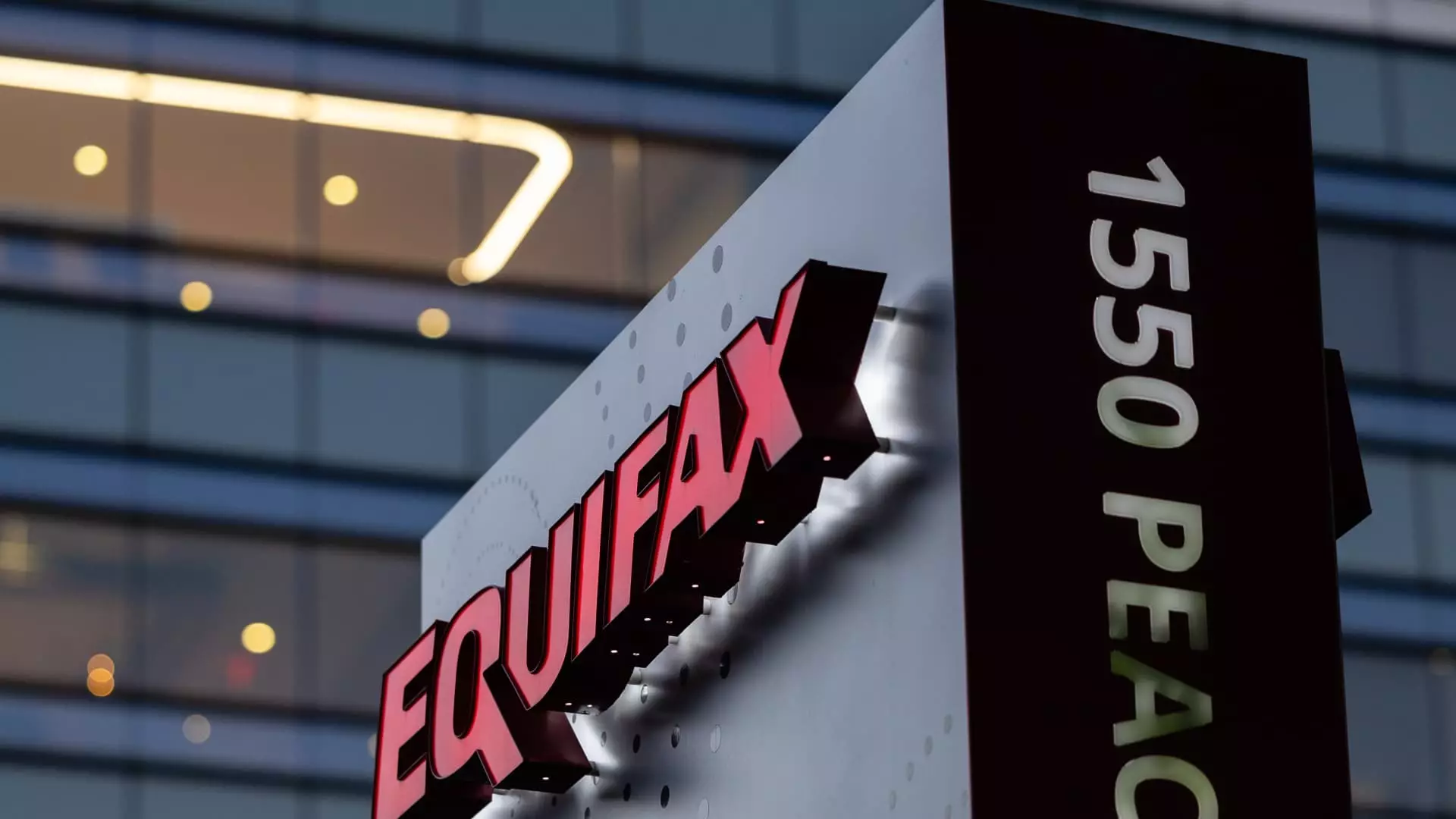In a significant move emphasizing accountability in the financial sector, the Consumer Financial Protection Bureau (CFPB) recently imposed a hefty $15 million fine on Equifax, one of the United States’ foremost credit reporting agencies. The announcement, made on a Friday, revealed systemic failures within Equifax’s processing of consumer credit reports. Essential services provided by Equifax, Experian, and TransUnion often dictate an individual’s financial standing, employment opportunities, and housing options. However, it appears that even slight inaccuracies in these credit reports can severely distort reality, affecting millions.
The CFPB’s investigation exposed a range of malpractice that included neglecting crucial consumer documentation during the dispute process, erroneously allowing previously removed information to resurface, and utilizing an inadequate software system that contributed to erroneous credit scores. By allowing these breaches, Equifax not only failed its customers but also breached the Fair Credit Reporting Act — legacies of consumer protection that should have safeguarded individuals against such inaccuracies.
Adam Rust, director of financial services at the Consumer Federation of America, depicted the potential damage stemming from erroneous credit reports as “severe.” The implications stretch beyond mere inconveniences; errors can hinder a person’s ability to secure a loan, gain employment, or rent a home. In contexts where financial viability is closely tied to credit scores, inaccurate information can create cascading obstacles, severely impairing individuals’ quality of life and leading to distressing financial outcomes.
With an average of approximately 765,000 consumer disputes processed monthly, the sheer volume of complaints suggests a systemic issue within Equifax’s operational framework. Yet, the pervasiveness of these disputes raises a critical question: how many individuals are unaware of the existing inaccuracies undermining their financial health? Equifax has a monumental responsibility to ensure its practices are not only effective but also consumer-friendly.
Equifax has stated it is ready to “turn the page” on its ongoing investigation, pointing to more than $1.5 billion invested in technological and infrastructural upgrades over recent years. This includes enhancements to its dispute protocols and better support for consumers. However, addressing the root causes of the investigation requires demonstrating tangible improvements in customer interactions and dispute resolutions. Empty promises and financial penalties are insufficient unless they are paired with commitment and action to prevent similar infractions in the future.
Notably, the $15 million settlement followed a parallel lawsuit against another credit bureau, Experian, highlighting a broader trend of negligence within the industry. The National Consumer Law Center’s Chi Chi Wu emphasized that such issues are longstanding and have been the subject of repeated legal actions. The credit reporting industry seems entrenched in these problems; hence, regulatory oversight will need to significantly increase alongside consumer vigilance.
Against this backdrop of corporate negligence and consumer vulnerability, it becomes paramount for individuals to proactively manage their financial health. The Federal Trade Commission (FTC) recommends consumers check their credit reports at least annually. Consumers have the right to request a free copy of their credit reports weekly, making it crucial to regularly verify identity information and account details. This preventative practice is fundamental to empowering consumers to navigate their financial situations confidently.
In cases where individuals may discover discrepancies, it’s imperative to follow the proper dispute channels, preferably through written communication rather than online platforms, as advised by experts like Wu. Maintaining a detailed record, including postal receipts and documents which support the dispute, can aid in achieving satisfactory resolutions.
Consumers should also be aware of their rights regarding the inclusion of dispute statements in their credit reports, offering protection and transparency regarding flagged inaccuracies. If efforts to rectify errors are met with ineffectiveness, seeking legal counsel may be necessary, especially if significant financial harm is suffered due to credit reporting inaccuracies.
Learning from Past Mistakes
As the Equifax case unfolds, it serves as a clarion call for both industry reform and consumer education. The credit reporting agencies must cultivate a culture of diligence, transparency, and accountability — their role in financial ecosystems requires a foundational commitment to accuracy and integrity. Indeed, the challenges highlighted in this instance are not merely corporate failures; they are societal issues that necessitate collective awareness and action.
For consumers, understanding and actively managing one’s credit report isn’t just a suggestion; it’s a necessity in today’s data-driven economy. As financial landscapes evolve, so must consumer engagement, transforming from passive participants to informed advocates of their financial destinies.

